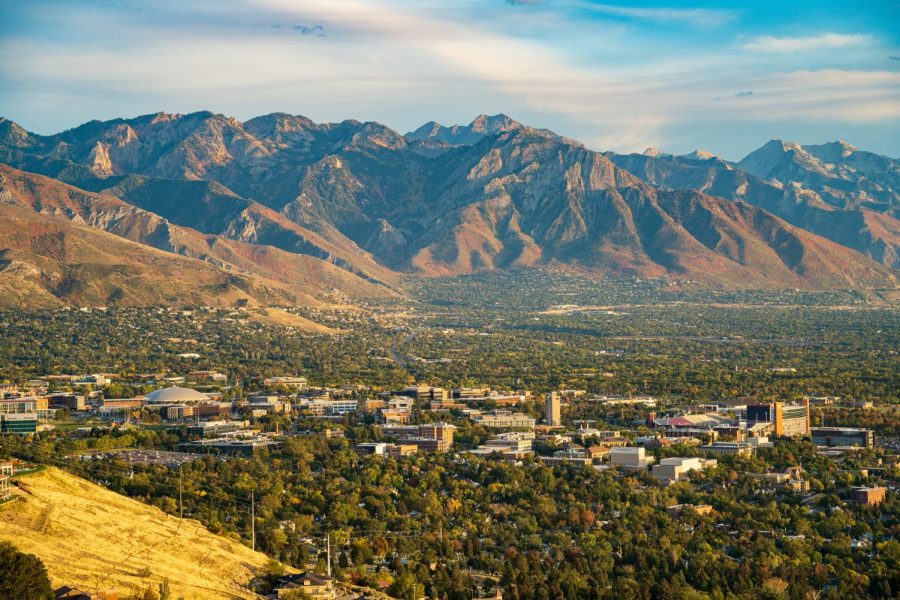Asian Cultural Center Will Benefit Students and Community, Advocates Say
The University of Utah campus in Salt Lake City, Utah on Oct. 5, 2021. (Photo by Xiangyao “Axe” Tang | The Daily Utah Chronicle)
November 1, 2022
Students at the University of Utah are working to create an Asian Cultural Center to serve Asian-identifying students and community members.
If implemented, the U would become the sixth PAC-12 institution with a cultural or resource center geared specifically towards assisting Asian-identifying students.
In September, the U of U Asian Collective released a petition of support for the creation of an Asian Cultural Center, citing increases in anti-Asian hate crimes since the start of the pandemic.
“There’s still not a very cohesive community of support for Asian-identifying individuals [in Utah],” said Tiffany Chan in a Zoom interview. “There’s no precedent.”
Chan, former ASUU vice president of university relations and one of the founders of the U of U Asian Collective, said it’s important the U has an Asian Cultural Center that’s backed by the administration, rather than just a student organization.
“Funding for student organizations can be very competitive,” Chan said. “Making this cultural center a part of the institution pretty much forces the U to fulfill its obligations to equity, diversity and inclusion.”
Chan said they took inspiration from the U’s Black Cultural Center and the way it serves more than just the U’s students.
“We thought that the Black Cultural Center was a really great point of inspiration,” Chan said. “They do a lot of community engagement. That brings about meaningful connections.”
To Chan, it’s important to incorporate community engagement that involves people outside the student body.
“We don’t want to only have students as a part of our programming, we also want to include faculty and staff,” Chan said. “We see this as a community wide effort, not just a student-centric focus.”
The resolution for the cultural center’s creation passed through U student government last April. Senate Treasurer Samuel Judd-Kim was one of the student government sponsors for the resolution.
“We recognize that this is going to be a long term effort,” Judd-Kim said. “It’s going to take, probably, years for all of the points to go through.”
Despite the long timeline, Judd-Kim said community response has been promising so far, with the petition reaching around 400 signatures.
The Asian Collective’s petition and social media outreach seem to have influenced administration, as an emergency meeting was held in response by the office of Equity, Diversity and Inclusion, Judd-Kim said.
Some things Judd-Kim wants the Asian Cultural Center to provide are devoted spaces for meetings, centralization of academic support and institutional support for cultural celebrations.
“One of the biggest things is visibility,” Judd-Kim said. “A lot of the things that this center hosts are activities that will engage not only Asian Americans but the larger campus community in rendering the voices of Asian Americans more visible.”
Two important tenets of the Asian Collective petition are the inclusion of Asian American history in university curriculum and the creation of a hate and bias task force tooled specifically to address anti-Asian hate.
“The curriculum part is going to be the hardest [and] the task force will be the easiest, I think, to implement,” Judd-Kim said. “We see the task force as the university recognizing that racial hate and bias happens on this campus.”
While adjusting university curriculum will take a lot, it would do a lot in breaking down harmful stereotypes held against Asian-identifying people, Chan said.
“I think a lot of people still don’t know that Japanese-Americans went to incarceration camps here in Utah,” Chan said. “Teaching Asian American history is pretty much the bare minimum. Having people understand that, it basically dismantles the stereotype that we’re the model minority.”








